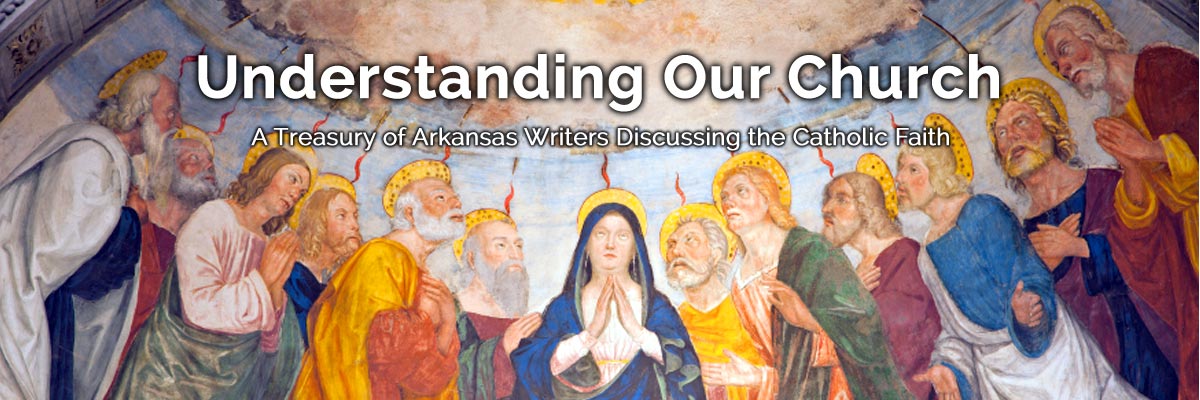Official Website of the
Catholic Diocese of Little Rock
Communion of saints binds us to our living and deceased loved ones
Published: February 16, 2017
By Deacon Mike Cumnock
St. Mary Church, Batesville / St. Cecilia Church, Newport
Recently, I was asked to minister to a family by celebrating the funeral rite for a young woman. We gathered for the service, and in the invitation to prayer, I used the following words: “We believe that the ties of friendship and affection which knit us as one throughout our lives do not unravel with death.”
The communion of saints is a spiritual union that binds together the pilgrim faithful on earth, souls waiting in purgatory and the saints in heaven — all of us in organic unity with Christ as its head.
The grief was palpable, and there were many non-Catholics in the congregation. I chose to preach on the communion of saints as a positive message that we do, in fact, believe that those of us left behind to mourn are still connected to those who have gone before us.
I explained that in a regular Mass after the homily, we stand to make our profession of faith. Normally we use the Nicene Creed, but sometimes we use the more familiar Apostles’ Creed. These two were developed only a few years apart during the fourth century in two councils in Nicaea and Milan, respectively.
They established the basic beliefs of the Church: That we believe in one God, the Father almighty, who created heaven and earth and in Jesus his Son and the Holy Spirit — three persons in one God. The Apostles Creed ends: “I believe in … the holy Catholic Church, the communion of saints, the forgiveness of sins, the resurrection of the body and life everlasting.
Today we take these statements for granted. These were ideas that had to be formulated and defended scripturally 1,700 years ago.
At a funeral we gather to celebrate a life lived and the existence of the communion of saints. When we think about saints, we think about the evangelists, the apostles, martyrs and witnesses for the Gospel the Church has officially declared to be saints. But I have also known persons in my lifetime that I believe to be saints. My grandparents willingly took me in and nurtured me and helped shape me into the Christian person I am today.
It’s easy to forget that we are also part of this community. The communion of saints is a spiritual union that binds together the pilgrim faithful on earth, souls waiting in purgatory and the saints in heaven — all of us in organic unity with Christ as its head.
It is no accident that the Apostles’ Creed puts the holy Catholic Church and the communion of saints together, because those of us on earth as well as those in heaven are one Church. Jesus said he is the vine and we are the branches.
Remember those we now recognize as saints were people just like us at one time. Look at the Apostles. Jesus gathered a group of misfits whose future as leaders of a church was certainly questionable. He didn’t weed out Judas Iscariot.
Jesus worked until his final days on earth to mold them into one community of believers who — when the time came — would do the right thing. They were wed together by their belief in Christ, and though all of them deserted him at the cross, it was through them that the Church was born.
This was a group who chose to stay together, in spite of hard times, as they struggled to create a community of faith. Today we are attempting to do the same.
We too are a hodgepodge of saints and sinners, who also struggle and mourn, but we ask the Lord to also mold us into a powerful force for good. We, during our lifetime, probably have an advantage the Apostles did not have: We already know we are part of an unbroken communion of saints.




